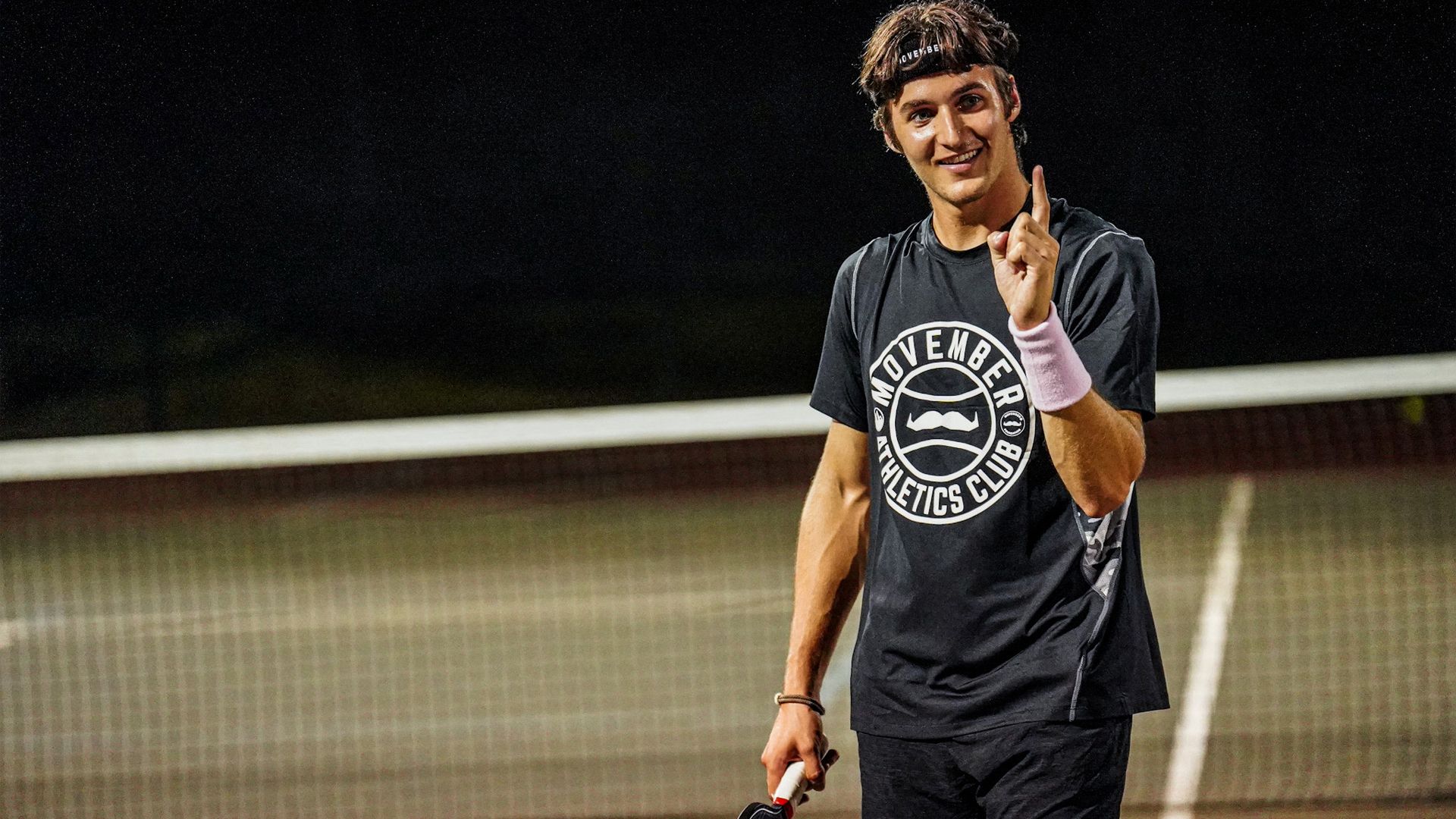

Meet the Pickleball Player Starting Conversations Across the Country
I got involved with Movember about six years ago when I tried to grow a Mo in high school for four years as part of our student government. Those four years really shaped where I’m focused now: raising awareness for and breaking the stigma around men’s mental health.
It all started in freshman year of high school. I don’t know where the pressure originated from, but there was this intense, internal desire to be perfect. I felt like my academics had to be great, my athletics had to be great, and socially I had to be out there. I was trying to check all of the boxes.
I was my harshest critic. So, when it came time to try out for high school tennis, a sport I loved playing and had excelled at, I put a ton of pressure on myself to make the team. When I tried out, I was trying to be the stoic competitor I heard the team was looking for. But that just isn’t who I am. I’m an animated person. I’m very vocal and passionate and so to try and bridle those emotions – it was the first time where I was met with this ideal of what I should be, but that really wasn’t who I was. That pressure to be a man who holds his emotions in while competing at a high level, lead to lots of stress and not great performance.
I spent most of my time on that varsity team really frustrated, feeling shitty, but also not showing it or talking about it. I’d let all the pressure bottle up, so when it came time to perform on the court, I was paralyzed. Sometimes I wouldn’t do more than sigh on the court during these moments, but when I was back in the car with my parents after the match, I would have an outburst of frustration and anxiety. I had that paralyzing feeling of anxiety all throughout high school, during varsity matches, national tournaments, and my studies too. Luckily enough, I had a mentor who sat me down one day. He told me that a good competitor should never bottle these things up. He encouraged me to vocalize what I was feeling, talking about what was going on. This gave me a taste of what a balanced relationship with a sport could be like.
I had some ups and downs that season, and when my shot at redemption came around in my senior year, COVID hit and competitive tennis wasn’t a part of my everyday anymore.
These days, I’m trying to break the stigma around men’s mental health through a new channel: pickleball – the fastest growing sport in America.
Pickleball (it makes me smile every time I say it!) was something I found at the beginning of the pandemic. Once I started, I couldn’t stop. And once I started looking – it was everywhere. I thought it was just a gym class sport, but no, people are playing this professionally There are tournaments and leagues, all across the country, all across the world.
When I first picked it up, I thought, “If I’m going to do this right and I’m going to play the sport, I don’t want a repeat of those last four years with tennis.” Looking back on it – I was miserable. But the sport is just so different. In tennis, I can have a really really competitive match, and I won’t say a single word to my opponent. I might not even look them in their eyes. But in pickleball, from the moment I step onto the court, I’m talking non-stop throughout the warm-up, during time-outs, after the match. It’s perfect for my mission with Movember to start more conversations.
This year, I’ve been going around the country, playing pickleball tournaments, raising awareness for Movember and sharing my story.
Going through this experience, I realized I can’t sacrifice my mental health. I’m in my 20s!’s I should be enjoying these moments, enjoying playing the sport without all the pressure. And if I do start to feel the anxieties return? I’m learning to open up about it. It’s still difficult for me, and I’m still learning, but I think it’s so important to bring this up, letting people know there’s nothing wrong with them, and showing that it’s okay to talk about this stuff.
We see these fictional characters out there. These men versus the world, and that they can conquer everything just through sheer ability. Society almost fetishizes this solo male hero that exists solely in fiction. The hero that is able to overcome any obstacle by himself using some incredible wit or deus ex machina. But that just isn’t real. In actuality, you need a team of people around you, you need support systems, and inner tools. Turn to your friends, your family, your teammates.
My mentor tried to instill in me this value of stepping back, and accepting that what you do – your accomplishments – aren’t who you are as a person. And knowing that your self-worth doesn’t have to be tied to that. That’s something I try to remind myself of every night, almost like a meditation or prayer. Reminding myself that my self-worth isn’t about hitting a great shot on the court or getting an A on a paper. Those things are great, but your self-worth is outside of them. I’ve been teaching myself that it’s okay to not always be perfect.
Support Richard’s efforts to raise efforts to raise funds and awareness for men’s health or join the Movember Pickleball Challenge here.